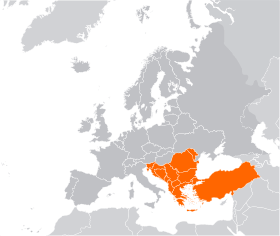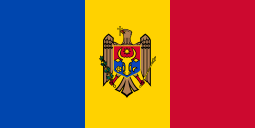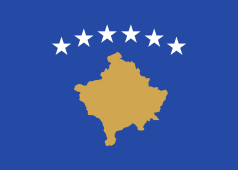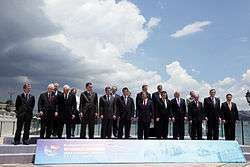South-East European Cooperation Process
The South-East European Cooperation Process (SEECP) was launched on Bulgaria's initiative in 1996. At the Bulgaria-chaired meeting in Sofia, the Southeast Europe (SEE) countries laid the foundations for regional co-operation for the purposes of creating an atmosphere of trust, good neighbourly relations and stability.

A special characteristic of SEECP is that it is an original form of co-operation among the countries in the region launched on their own initiative, and not on the initiative of some other international organisation or countries. In that regard, the SEECP seeks to define itself as an authentic voice of SEE, complementary to the Stability Pact, Southeast European Cooperative Initiative or the Stabilisation and Association Process.
The basic goals of regional co-operation within SEECP include the strengthening of security and the political situation, intensification of economic relations and co-operation in the areas of human resources, democracy, justice, and battle against illegal activities. It is the intention of the SEECP to enable its members to approach the European and Euro-Atlantic structures through the strengthening of good neighbourly relations and transformation of the region into an area of peace and stability.
Membership
- Founding members:
- Joined later:





Structure
The SEECP is a regional non-institutionalised process co-ordinated by the presiding country. The SEECP presidency lasts for one year and is rotated among the members. The presiding country presents the Process at international meetings and hosts the annual meeting of heads of state and government, foreign ministers meeting and a number of annual meetings of political directors. Depending on the situation, the presiding country may call extraordinary meetings.
Chairmanship
Presiding country is changed each year:
- 1996–97, Bulgaria
- 1997–98, Greece
- 1998–99, Turkey
- 1999–2000, Romania
- 2000–01, Republic of Macedonia
- 2001–02, Albania
- 2002–03, Serbia and Montenegro
- 2003–04, Bosnia and Herzegovina
- April 2004 – May 2005, Romania[1]
- May 2005 – May 2006, Greece[2]
- May 2006 – May 2007, Croatia[3]
- May 2007 – May 2008, Bulgaria
- 2008–09, Moldova
- 2009–10, Turkey[4]
- 2010–11, Montenegro
- 2011–12, Serbia
- 2012–13, Republic of Macedonia[5]
- 2013–14, Romania
- 2014–15, Albania[6]
- 2015-16, Bulgaria
- 2016-17, Croatia
- 2017-18, Slovenia[7]
- 2018-19, Bosnia and Herzegovina
- 2019-20, Kosovo
- 2020-21, Turkey
Meetings held
Heads of state and government meetings:
- 2–4 November 1997, Crete
- 12–13 October 1998, Antalya
- 12 February 2000, Bucharest
- 25 October 2000, Skopje (extraordinary meeting)
- 23 February 2001, Skopje
- 28 March 2002, Tiranë
- 9 April 2003, Belgrade
- 21 April 2004, Sarajevo
- 11 May 2005, Bucharest
- 4 May 2006, Thessaloniki
- 11 May 2007, Zagreb
- 21 May 2008, Pomorie
- 5 June 2009, Chişinău
- 21–23 June 2010, Istanbul
- 1 June 2013, Ohrid (cancelled)
- 25 June 2014, Bucharest
- 26 May 2015, Tiranë
- 1 June 2016, Sofia
- 30 June 2017, Dubrovnik
- 24 April 2018, Kranj
- 8–9 July 2019, Sarajevo (Refused by Kosovo)
- June/July 2020, Pristina (Online)
Foreign ministers meetings:
- 6–7 July 1996, Sofia
- 5–6 June 1997, Thessaloniki
- 8–9 June 1998, Istanbul
- 19 March 1999, Bucharest
- 2 December 1999, Bucharest
- 14 July 2000, Ohrid
- 16 May 2001, Tiranë
- 19 June 2002, Belgrade
- 9 June 2003, Sarajevo
- 22 October 2004, Bucharest
- 24 January 2006, Athens
- 1 March 2007, Zagreb
- 14 June 2012, Belgrade
- 22 May 2015, Tiranë
- 23 April 2018, Kranj
- 5 September 2018, Banja Luka
- 25 June 2020, Pristina (Online)
See also
- Regional Cooperation Council
- Southeast Europe
- Stability Pact for South Eastern Europe
- Southeast European Cooperative Initiative (SECI)
- Organization of the Black Sea Economic Cooperation (BSEC)
References
- http://www.mae.ro/seecp/
- http://www.mfa.gr/seecp/
- "Archived copy". Archived from the original on 2007-01-05. Retrieved 2007-01-05.CS1 maint: archived copy as title (link)
- http://www.seecp-turkey.org
- "UN General Assembly General Debate of the 67th Session - The former Yugoslav Republic of Macedonia". Gadebate.un.org. Retrieved 2012-09-28.
- http://www.punetejashtme.gov.al/en/mission/seecp
- https://english.sta.si/2269552/slovenia-to-preside-over-seecp-in-2017
- Kosovo is the subject of a territorial dispute between the Republic of Kosovo and the Republic of Serbia. The Republic of Kosovo unilaterally declared independence on 17 February 2008, but Serbia continues to claim it as part of its own sovereign territory. The two governments began to normalise relations in 2013, as part of the 2013 Brussels Agreement. Kosovo is currently recognized as an independent state by 97 out of the 193 United Nations member states. In total, 112 UN member states recognized Kosovo at some point, of which 15 later withdrew their recognition.
External links
| Wikimedia Commons has media related to Southeast European Cooperation Process. |
